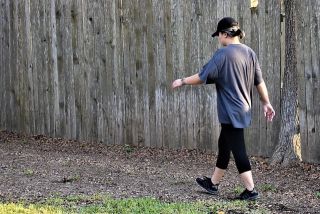
Source: Ray_Shrewsberry/1978 Images/Pixabay
I’m giving a talk next week on men and mental health for International Men’s Health Week (10-16 June) and I have been told, in no uncertain terms, to devote a section of my presentation to the physical and psychological benefits of exercise. Not just because the well-being coordinators behind the talk think that it’s what men want to hear, but also because science is very clear on the matter. Recent research backs up what we already know very clearly indeed: Exercise is good for you.
A study published in Neuroscience and Biobehavioral Reviews only last month found that higher levels of physical activity significantly reduced the risk of depression and notably decreased the incidents of anxiety.
The results weren’t just based on the menfolk, however, as the authors found that this association was consistent across age, sex, and geographical location.
Exercise doesn’t just help you to alleviate your symptoms
Moving the body could even prevent them in the first place. “Emerging research has proposed physical activity as a potential adjunctive strategy for preventing mental health complications. This proposition is supported by numerous studies indicating the potential role of physical activity in alleviating symptoms associated with depression, anxiety disorder, and psychosis,” the authors noted.
The study came hot on the heels of this year’s Mental Health Week (13-19 May) the theme of which was ‘movement’ and how beneficial it was.
Regular movement can improve your psychological and physical fitness, is a great antidote to stress, improves your immune system as well as cognitive function, releases endorphins (the body’s feel-good hormones) and, in conjunction with good nutrition, can improve the quality of your sleep.
I have noted a shift in general practice and psychiatry, away from a pills-first prescription for whatever ails you and towards an improvement in what practitioners term lifestyle factors. And, by lifestyle factors, they mean healthy eating, regular exercise, and decent sleep. Improving these things (alongside a course of therapy if needed) quite often negates the need for anti-depressants and anti-anxiety medications in the first place. And that can only be a good thing.
However, when you suggest exercise to people, they all too often immediately think of the gym or an aerobics class and then turn their noses up. But exercise does not have to mean joining your local fitness centre.
This is good news for people who only want to or who are only capable of making those smaller lifestyle adjustments.
Take walking for instance. It’s well known that half an hour of it a day is good for you. But that doesn’t necessarily mean half an hour in one fell swoop. You could walk for 15 minutes twice a day, or 10 minutes three times a day and then build up from there.
Other studies have found that something as simple as going for a walk can give you the same mental health benefits as a rigorous session in the gym.
Fitness at work
In response to the benefits of exercise, some companies offer walking meetings, encourage the use of stairs instead of elevators, and schedule flexible break times to allow for frequent walks. For those of you who do want to break a sweat or pump iron, on-site fitness classes are becoming the norm in office building developments and refurbishments.
Finally, a lot of people reading this will be thinking ‘Duh!’ Saying, ‘exercise is good for you’ is as obvious as saying, ‘the sky is blue’ or that ‘rain is wet.’ You know already, don’t you?
The problem with the obvious is that all too often, it’s so obvious that we forget to act on it, or we allow other things to get in the way. Depression, once it moves beyond the moderate stage makes the best thing to beat it (exercise) is the one thing you are in absolutely no mood to do. Talk about Catch-22.
Depression Essential Reads
I will be pointing out all these things and more (as well as suggesting ways to deal with them) in my talk next week. Another interesting thing that studies have found is that a statistically significant number of men prefer exercise to therapy, which is why I’ve been asked to include it in my presentation.
